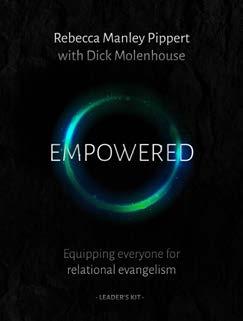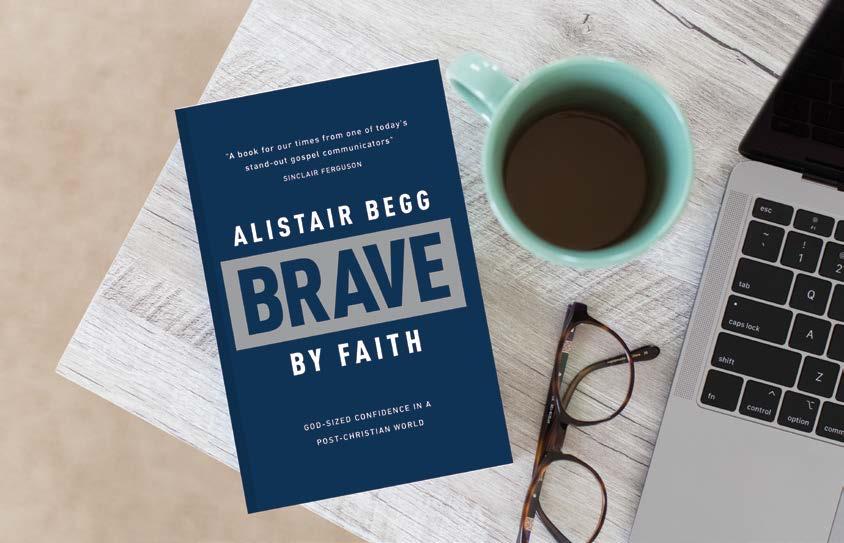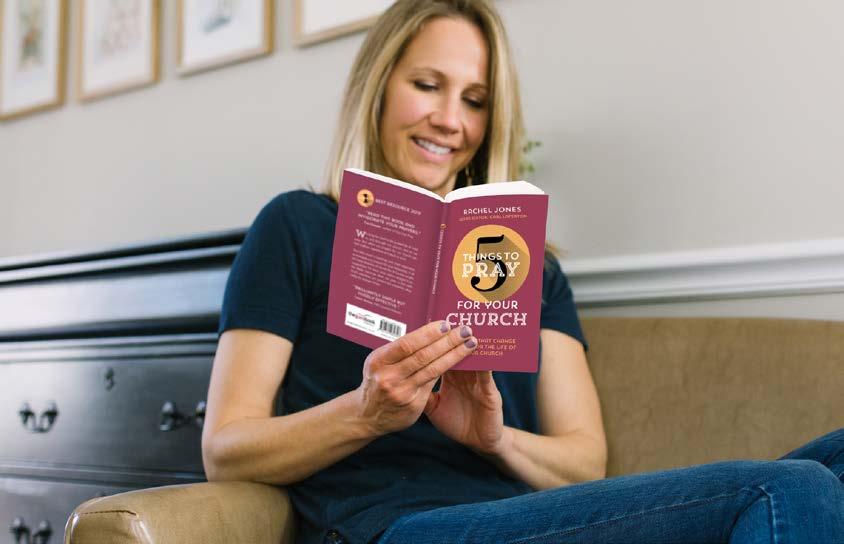
5 minute read
books that will help you to share your faith
In this empathetic, easy-to-read and powerfully evangelistic book, Dr Amy Orr-Ewing gives a heartfelt yet academically rigorous examination of how different belief systems deal with the problem of pain. She explains the unique answer that is found in Christ and how he can give us hope in the reality of suffering.
Amy Orr-Ewing £7.99 £6.79
Advertisement
ANY 2 FOR £12*
APOLOGETICS BOOKS TO GIVE AWAY
There are many complex questions surrounding topics such as science, sex, suffering and history that are either barriers to faith for those who are not Christians, or problems of faith for those who are. In the Questioning Faith series, top academics in their field grapple with these questions in a way that is accessible to those who may have little or no background in the area. The authors are all connected to OCCA, The Oxford Centre for Christian Apologetics.
BEST SELLER
BOOKS IN THE QUESTIONING FAITH SERIES
• Can Science Explain Everything? | £7.99 £6.79 • Why Does God Care Who I Sleep With? | £7.99 £6.79 • Where Is God in All The Suffering? | £7.99 £6.79 • Am I Just My Brain? | £7.99 £6.79 • Is Jesus History? | £7.99 £6.79
Learn How to Share Your Faith

Learn from God’s dealings with Jonah how to change from being a reluctant evangelist to an effective one: by knowing the character and purposes of the living Lord.
Richard Coekin £7.99 £5.99
Renowned evangelist Rebecca Manley Pippert gives Christians confidence to share Jesus, like Jesus—relevantly, thoughtfully and effectively.
Rebecca Manley Pippert £8.99 £7.64

A positive, practical and biblical seven-session DVD course that excites and equips ordinary Christians to share Christ in everyday life.
R Manley Pippert & D Molenhouse DVD Leader’s Kit £29.99 £24.99
NEW
HOW TO LIVE CONFIDENTLY FOR CHRIST TODAY

We know that we are saved by faith, but how do we live by faith in a society increasingly opposed to God’s ways and God’s word? Here’s an extract from the introduction of Alistair Begg’s new book on how to live confidently for Christ today.
In reality, for us in the English-speaking West, this world has tended to feel very much like home, and our treasures have been right before our eyes. But now we are finally facing the fact that this broken, sinful world in which we live is not actually our home— that what the Bible says concerning believers in this world is really true: that we really are aliens and that we really are strangers. The fact of the matter is that it has always been true that we are strangers in and to this world. It has just been clouded, obscured by the size and influence and legal protection of the church in most of the Western world. But this world is not actually our home. We’re not supposed to be settling down here forever. We’re not supposed to be treating this life the way other people treat it, as if this is the be-all and end-all of everything, or as if as Christians we can have a comfortable, respectable, prosperous life here and look forward to even more of those things in eternity.
Secularism pushes back again and again against what the Bible says about sexual ethics, about salvation, about education, about the role and reach of the state, or about matters
of public welfare. Public opinion has turned against Christians. As the British columnist and social commentator Melanie Phillips puts it, we live in a culture…
“ … which will have no truck with claims such as religious miracles or the existence of God. These are dismissed as the superstitious beliefs of a bygone primitive age of myth and bigotry.”
(The World Turned Upside Down, page 2)
Superstitious bigotry. Suddenly, as a minority
group within an increasingly secularized nation, we are finding out how it feels to be outsiders. And we don’t like it. We’re not used to it. And it’s easy to become bewildered, angry, defensive, or defeated.
So the question is, what does it look like to live as a Christian in a society that does not like what Christians believe, what we say, and how we live? Enter the book of Daniel. Daniel and his friends had grown up in the promised land, in Judah. As young men, they found themselves being dragged into exile, far away from the society they had known, into a city that neither knew of nor cared about nor was impressed by their faith or their lives. Daniel would live in Babylon from his late teens or early twenties until he was in his eighties or nineties. Most likely he
died there. These exiles were understandably fearful of the power that held them in its grip, and were wondering what God was doing and whether they could (or should) keep obeying him in such circumstances.
And so the message of Daniel is incredibly relevant for us in our generation. Not because it maps out a strategy for how to deal with our new lack of status—or to reverse it. Not because Daniel was a great man and we need to follow his example, buck up, and be more like him. Yes, it’s a good idea to seek to emulate the men and women of faith we find in the pages of the Bible. But no, this book will not tell you to be like Daniel. Instead, it will call you to believe in Daniel’s God. We will be able to navigate our present moment to the extent that we realize that the God of the exiles in the sixth century BC has not changed in the intervening two and a half millennia. For the overarching message is simply this: God is powerful, and God is sovereign, and even in the face of circumstances that appear to be prevailing against his people, we may trust him entirely. The battle may seem to be tilting against the church, but still God reigns supreme. Here is how you stand firm and live bravely when the wind is blowing hard against you.





